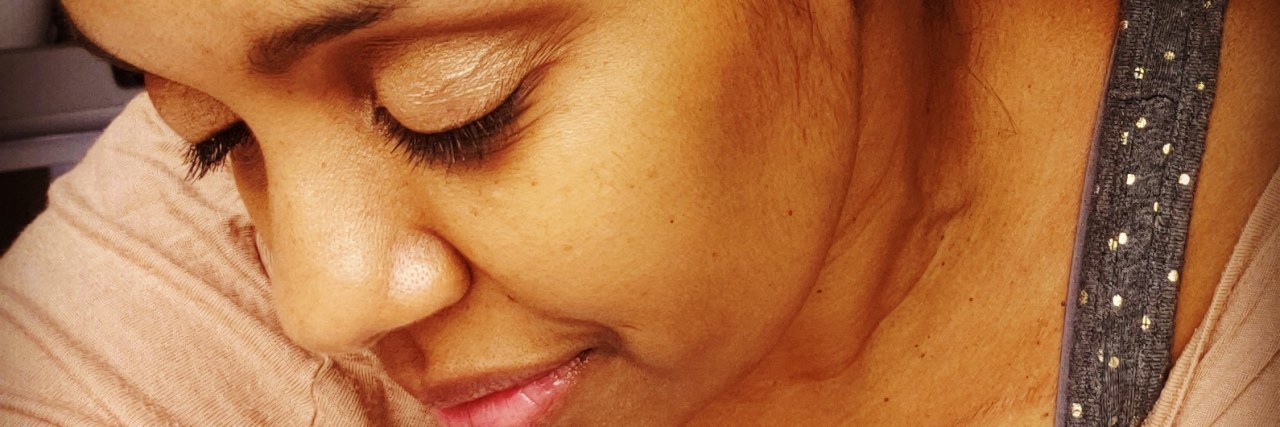When most people go to the ER, it’s for one of a few common reasons — such as a baby, car accident, heart attack, stroke, or overdose. If they’re lucky, it’s their only visit to the ER in their entire lives. These people are generally very nervous, panicked and searching for answers with the quickest, cheapest, positive treatment plan possible. They tend to look to the doctors and nurses to help them understand why they got in the situation to begin with, and tell them what they should be doing to recover.
Lucky for them, our healthcare was built for them — healthy people who are in need during certain life milestones. They break bones as kids. They have babies and non-lethal car accidents as adults. Finally, they have heart attacks and strokes in old age. All of these things are usually easily identified and treated. If all goes well, that patient will rarely, if ever, see an ER again.
Every time I go to the ER, I have to brace myself for the insults, conversations, discrimination and disrespect I’m going to have to endure — all while attempting to get the healthcare I greatly need. Unlike the patients discussed above, I am a sickle cell patient and like most, I’m a professional patient. This means I must go to the ER often, and when I go, I’m not looking for answers — either in the form of verbal conversation or treatment. I already know why I’m there, what I need and the outcome I want — which frankly is the only one that really matters.
Now one might think that medical professionals would be happy to have a patient who knows what they need and has 29 years of medical records to back up their statements and requests. You might think that the minute a patient identifies themselves as an SCD patient in crisis, ER staff would jump into action. That doctors would immediately turn to the charts, call the specialists and then proceed to write orders that will hopefully start to get the pain under control. Easy, right? Not so much. That rarely happens.
When I enter the ER, it’s never simple or easy. I don’t know why, but it’s like if a staffer is polite to us, they are betraying some type of unsaid code. Doctors rarely read the chart. Instead, they hide behind the statements “I’m not comfortable giving that much medication. It’s just my policy not to give IV Benadryl, period. Especially with pain meds. I’m going to treat your pain and that’s all.” Why is it that doctors act like SCD pain is the only part of the crisis worth treating? Yes, the pain is horrific and yes, you want it over as quickly as it started. However, the pain is simply the alarm telling us that something else is going on.
This disease affects the entire body, not just the blood, because the red blood cells are malformed and can’t deliver the proper amount of oxygen throughout the body. Basically, the pain is saying “Hey! We got problems here! Her kneecap is almost gone. Might be time for a new one. Her hemoglobin is hella low. You know we in here slowly suffocating, right? Not just cells but organs, tissues etc. — time to drop the oxygen masks from the ceiling. Not to mention this damn infection that just pulled up ain’t nuthin’ nice! I suggest y’all fix this ASAP!”
What I don’t understand is:
1) The medical community has known about sickle cell disease for over a century now.
2) They know that carriers have malformed red blood cells that prevent the body from receiving a normal amount of oxygen. Once those cells start blocking the blood flow to any part of the body, it results in indescribable pain.
3) They know that treating pain as quickly and effectively as possible is the most effective way to prevent a crisis from getting out of control. Thus resulting in shorter hospitalization.
4) They know that once we age out of pediatrics, our healthcare is little to none, simply because there are very few MDs that will treat us properly and even fewer who specialize in SCD as we get older. So there are quite a few of us who use the ER for management once it’s out of control.
Instead of looking down on those who need the ER and scolding them for not having stable care, try understanding what’s it’s like to suddenly be abandoned by your entire team simply because you’ve aged out. Imagine what it’s like when everyone who has cared for you is suddenly taken away and the people who took their place label you an “addict.” When you go to the very place designed to care for people and find out they won’t care for you to the best of their abilities, simply because they are “uncomfortable” with treating SCD patients and won’t give the proper medication (if they medicate you at all) to control the crisis.
Sickle cell disease affects millions of people worldwide, including approximately 100,000 in the United States. We deserve better from healthcare providers.

